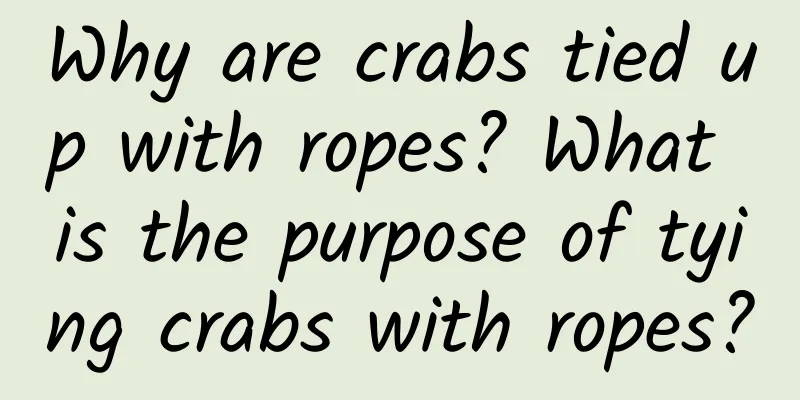Want to get your money's worth at a buffet? You have to consider your health

|
I gain three pounds during the holidays. The Chinese New Year is coming soon. Friends who like to eat buffets must have had this thought: how can you make your money back at buffets? As the saying goes, knowing yourself and knowing your enemy ensures victory in every battle. In addition to knowing your enemy - identifying the price of food and calculating the economic account, you also need to know yourself - understanding the physiological process of eating and then calculating the health account. People eating buffet in a cafeteria Image source: AI generated The most common idea of many friends is to eat until you have to lean on the wall when you are hungry, and eat until you have to lean on the wall when you are full. Eat less or even go hungry first, and then go to the buffet for a big meal. However, this idea is wrong. In the tubercular area of the human hypothalamus, there is an appetite center related to the response to feeding activities. Among them, the lateral area is the feeding center (also known as the hunger center), which plays a role in deciding to start feeding activities; the ventromedial nucleus is the satiety center, which plays a role in deciding to stop feeding activities. The appetite center is regulated by various hormones, such as insulin and glucocorticoids, which can stimulate feeding behavior, while cholecystokinin and melanocortin can inhibit feeding behavior; in addition, the appetite center is highly sensitive to blood sugar concentration. But this does not mean that you can increase the amount of food you eat at the buffet by not eating that day. After fasting, blood sugar will indeed drop significantly. At this time, the appetite center will produce a sense of hunger, but as blood sugar continues to drop, the body will convert a variety of non-sugar substances such as lactic acid, glycerol, and glycogenic amino acids into glucose, and stabilize blood sugar between 3.9-6.0mmol/L. As blood sugar levels drop, insulin secretion decreases, and stimulation to the feeding center also decreases. Appetite will actually decrease compared to eating on time, which is commonly known as "over-hunger." Schematic diagram of the brain structure. Image source: Internet So why can the big stomach kings on the Internet eat a day's worth of food in one meal? In fact, as the name suggests, the big stomach kings have a bigger stomach than ordinary people, or in other words, their stomachs are enlarged. The stomach is the largest part of the digestive tract, and the amount of food we eat depends mainly on the capacity of the stomach. When the stomach is completely empty, it is slightly tubular, with a capacity of about 50mL. When it is highly filled, it is spherical, with a capacity of up to 2L. This is due to the stomach's receptive relaxation. When we swallow food, the food bolus stimulates the receptors in the pharynx and esophagus, and the reflex of the vagus nerve causes the proximal stomach to relax in order to accommodate the food. In short, the state of the stomach being filled with food is like filling a balloon with water. The more water is filled, the more it will expand until the stomach capacity reaches its limit. If a big eater eats food that is close to the limit for a long time, the stomach's relaxation limit will gradually increase, and it can even fill the entire abdominal cavity, so that they can naturally eat more food. Stomach shape picture source: Internet However, this is not a good thing. If you eat a lot of food in a short time, the stomach cannot continue to relax to reduce the intragastric pressure. Continuing to eat will cause the intragastric pressure to rise rapidly until it exceeds the pressure of the cardia, and the food will be vomited out. If unfortunately you don't vomit it out, the esophagus and the cardia, the stomach and the duodenum will form an acute angle, which will hinder the discharge of gastric contents. Then the enlarged stomach may compress the surrounding intestines, blood vessels, and even shock. Even if you avoid eating too much, an enlarged stomach is harmful to your health. In addition to contracting when you are fasting and relaxing when you eat, the stomach will also begin to peristalsis when you eat to grind and crush lumps of food, mix food with digestive juices and send food into the intestines. Long-term expansion and high pressure in the stomach will lead to a decrease in the stomach's contraction ability. If the food is retained for a long time after eating, it will cause abdominal distension and nausea, which is commonly known as "indigestion." Eating too full also makes you feel uncomfortable. Image source: AI generated It seems that it is easy to end up with more harm than good when tinkering with stomach capacity. However, since a decrease in stomach contraction ability can lead to indigestion, is it possible to increase digestive capacity instead? About 5 minutes after food enters the stomach, it will enter the duodenum from the stomach due to gastric motility. This process is called gastric emptying. When the food in the stomach is completely emptied, you can eat again. It is so simple to increase your appetite! So how long does it take for food to be completely emptied? The answer is 4-6 hours, which is just about the same as the interval between meals. It is not helpful for the general 2-hour buffet time! But don't worry, different foods have different emptying times. According to the nutritional composition of the food, carbohydrates are emptied the fastest, followed by proteins, and fats are the slowest. In addition, fats will stimulate the secretion of cholecystokinin after entering the intestines, thereby inhibiting the feeding center, giving people a "greasy" feeling. In addition, the form of food also has a great influence. Liquid food begins to empty immediately after eating, and there is an early rapid emptying period, which can be emptied in about 15-30 minutes. If it is semi-liquid food, the emptying time can be extended to 60 minutes. If it is mixed food, that is, food mixed with solids and liquids, the emptying time will be extended to 60 minutes. This is because the emptying of solid food starts late. There is a grinding period after eating, which lasts about 45 minutes on average. At this time, almost no solid food is emptied. Only after the grinding is completed, the chyme will be emptied at a relatively uniform rate, continuously, until the stomach is completely empty. These properties give us some hints on eating strategies: dietary fiber can increase the viscosity and volume of food, reduce the speed of gastric emptying of food, and thus reduce the amount of food eaten; fat is emptied slowly, so it is not recommended to consume it at the beginning; as for water, drinking enough half an hour before a formal meal can better avoid squeezing out the space in the stomach. In fact, with the development of the times and the abundance of food, we do not need to work hard to take in as much food as possible in a limited time like our ancestors who evolved this digestive system. Instead, obesity, high blood lipids and high blood sugar are troubling us. From a longer-term perspective, if we overeat without restraint, we will eventually get gout and diabetes, which will not only prevent us from enjoying delicious food in the future, but also affect our health, which is a loss in the long run. |
<<: Is the decline in ovarian function really related to the age of the pregnant mother?
>>: Effectively preventing AIDS, will this drug become the terminator of AIDS?
Recommend
What to do if you have stomach acid during pregnancy
Every normal person has a certain amount of gastr...
Is hysteroscopic curettage a good idea for postpartum care?
Hysteroscopic curettage is not suitable for confi...
What to do if you have dry stool after cesarean section
It is very common for women to suffer from consti...
What are the specialties of Korea? How to buy Korean cosmetics?
South Korea (Korea), the full name of which is th...
What will happen to your body if you eat one fried dough stick every day? Is the aluminum content in fried dough sticks really excessive?
Youtiao is the "kingpin" of breakfast! ...
The difference between influenza A and the common cold
Recently, influenza A (influenza A) has been ramp...
What should we do if we cannot find the cause of a “heart disease”? It may be that there is a problem with the heart nerves.
I have come across several similar cases, which a...
How much progesterone indicates pregnancy?
Many women will secrete progesterone after pregna...
What are the dangers of eating lotus root for pregnant women?
There are many benefits for women to eat lotus ro...
Reasons why the right ovary is larger than the left ovary
In ancient my country, there was a phrase to desc...
Don’t be afraid of allergic rhinitis, the head of Tongren Hospital will teach you how to deal with it!
"Popular Science of Medical Science with Cot...
Hepatitis E from a meal of oysters
This is the 4412th article of Da Yi Xiao Hu Recen...
Diagram of the posture for preparing for pregnancy with anterior uterus
What position is easier to get pregnant with an a...
What to do if you have hemorrhoids during the confinement period
Sitting in confinement after childbirth is a phys...
How to treat menstrual blood clots
Menstrual problems have always been a problem for...









